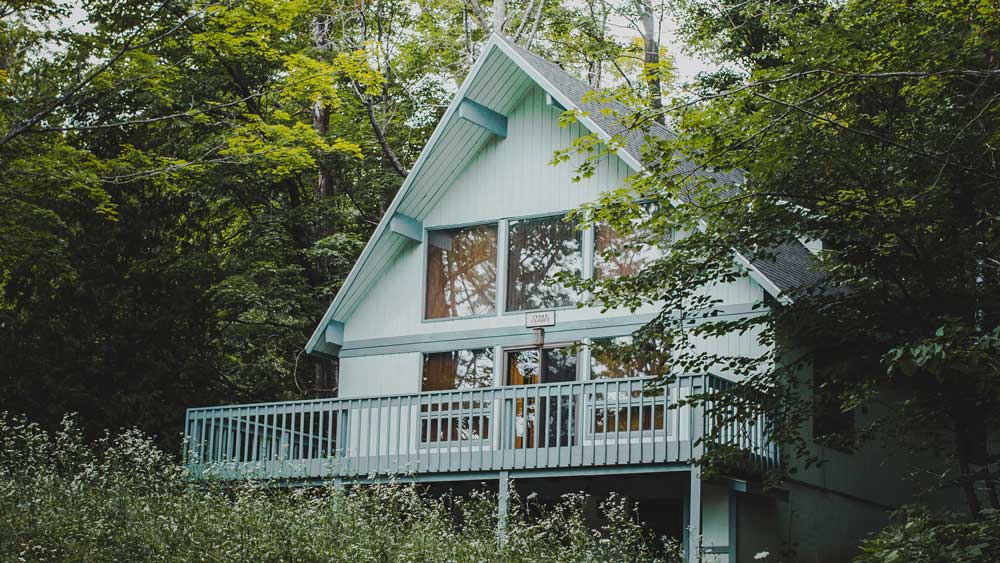
Last updated: November 20, 2021
How to Buy a Vacation Home: Introduction
As I reflect on the topic of how to buy a vacation home, I am naturally drawn back to when I bought my first vacation home. In particular, I remember how much information was thrown at me. From understanding how much I could afford to weighing the pros and cons of a vacation condo vs a vacation home, there is a lot to take in. Somehow, an experience that’s supposed to be exciting and filled with joy can quickly turn into a stressful one.
With this in mind, in this article I provide a practical guide on how to buy a vacation home. By following these steps, you will be in a better position to ensure a smooth buying experience. So let’s get started.
For a more complete guide on everything you need to know before buying a second home, explore my article on Buying a Second Home: Everything You Need to Know Beforehand.
Determining Whether Buying a Vacation Home is Right for You

Like any big purchasing decision, you should first determine whether buying a vacation home is right for you. First, you should reflect on why you would like to own a vacation home. For instance, buying a vacation home for family use will have different considerations than buying a vacation rental property. In my case, I purchased my vacation property for both personal use and as a vacation rental. As such, I had to consider it from multiple perspectives. In particular, here are some common reasons to buy a vacation home and relevant considerations for each:
- Personal/Family use. For vacation homes that are primarily bought for personal or family use, it’s important to set reasonable expectations in terms of how much you will actually use the property. In my case, I find I use my property less often than originally expected because life gets busy. When I’m not using it, however, I’m able to rent it out. The last thing you want to do is make a significant investment in something that you won’t get your money’s worth out of. If you’re buying a vacation home with other family members, be sure you have a plan in place to deal with an eventual sale of the property.
- Vacation rental. When buying a vacation rental, you’ll need to take into account such things as the local short-term rental regulations, the revenue potential of the property, property management, tax implications and other similar considerations. Even if short-term rentals are permitted in the area, if the property is subject to a home owners association or strata counsel, there may be further restrictions in the governing documents.
- Retirement. Planning for retirement has its own unique set of considerations, especially from a financial planning perspective. Will buying a retirement home early set your retirement back a few years? If so, it might not be worth it. One of the obvious benefits of owning a vacation home in the interim is that you can get comfortable with your new home over time before you move into it full-time.
- Investment. Investing in real estate is often seen as a wise decision over the long term. Yet, historical returns show that real estate has been outperformed by the stock market. Still, there are other benefits to investing in real estate such as generating rental income and leveraging the bank’s money. Try our Real Estate ROI Calculator here to help you determine whether investing in a vacation home is right for you.
Once you’ve determined that buying a vacation home is right for you, next you will need to arrange financing.
Arranging Financing
Before arranging financing, you will need to determine how much vacation home you can afford.
How much can you afford
Here are some general affordability guidelines to follow:
- Down payment. Be prepared to come up with at least 20% or more of the purchase price as a down payment as opposed to 5-10% on a primary residence. Second home lenders will typically require larger down payments given the heightened risk of default on vacation properties.
- Debt-to-income ratio. Your debt-to-income ratio is a measure of your gross monthly income that goes to paying your monthly debt (total monthly debt payments divided by gross monthly income). Second home lenders use this ratio to determine your ability to service another mortgage. A good rule of thumb is to ensure a debt-to-income ratio of no more than 43% overall.
- Rental income. If you plan on renting out your vacation home while it’s not in use, you may be able to get credit for up to 70-75% of the fair market rents. By doing so, you can reduce your debt-to-income ratio to a more manageable level. Not all lenders, however, will take rental income into account.
Be sure to also try our Can I Afford a Vacation Home Calculator to better understand how much you can afford.
Explore your financing options
Once you understand your budget, you will need to explore your financing options, which may include:
- Second home mortgage. When I purchased my vacation home, I took out a second home mortgage. In my case, I put 20% down and my interest rate was slightly higher than an interest rate for a primary residences. In fact, you can expect to pay rates that are 0.25% to 0.5% higher than you would for a primary residence.
- HELOC. If you have equity in your home, you may be able to borrow against it at a reasonable rate by opening a home equity line of credit. A HELOC acts like a credit card where you draw down on it and only pay interest on the amount borrowed.
- Second mortgage. This is another way to leverage the equity in your primary residence. A second mortgage is a fixed loan on your existing home, much like your first mortgage but in second position, where you pay principal and interest payments on a fixed term.
- Private lender. Where traditional bank financing is not available, private lenders may be an option but be prepared to pay higher interest rates and other fees.
Settling on a Vacation Property Type and Location

Now that you’ve arranged financing, you’re almost ready to search for your vacation home. Before doing so, however, you will need to settle on the property type and location. After all, budgetary constraints could place limitations on where and what you buy.
In my case, I opted to buy a condo given that it represented an affordable alternative to a house and offered convenience and reduced maintenance obligations. Yet others may prefer the space and privacy of a house or cabin in the woods. There’s no right or wrong answer here so you’ll need to decide what’s right for you.
The area you purchase is also an important determination. In my case, it was important for me to be within a two hour drive of my home given that I wanted to use my vacation home on weekends. For that reason, there were only a handful of locations for me to consider. If you’re still mulling over certain locations, I recommend staying in a vacation rental in the areas you’re interested in so that you can get a better feel for each location.
For a list of some of the best places to buy a vacation property in the United States, explore our articles on the best places to buy a vacation property in California, Michigan and Pennsylvania. For a list of the best places to buy a vacation property in Canada, click here.
Once you’ve settled on a property type and location, you can then begin searching for a property.
Searching for a Vacation Home

With the help of a realtor, search MLS listings in the area within your price range. Attend open houses to get a better feel for what is being offered at different price points. Your realtor will also have access to recent sales history so that you know how much properties are actually selling for in your area. In hot real estate markets, you will be expected to have your financing pre-approved and you may have limited ability to include “subject clauses” in your offer. In order to conduct a property inspection, you may want to have a company lined up to do the inspection on short notice, including any relevant experts such as asbestos detection, well testing, elevation certificates for waterfront properties etc.
Submitting One or More Offers and Closing
After finding the perfect property, you will need to submit an offer and, once accepted, close the transaction. Depending upon market conditions, you may also need to submit multiple offers before one is accepted so you may need to be patient. Following acceptance, you will need to sign a bunch of documentation to finalize the mortgage and transfer title to the property. From there, you get the keys and gain possession of the property.
And that’s how to buy a vacation home. You now have the keys to your very own vacation home!
How to Buy a Vacation Home: Other Tips
- Be sure to work with a qualified tax professional to better understand the tax implications of owning a vacation home
- If you’re buying in a foreign jurisdiction, take the appropriate time to complete necessary due diligence on the area and arrange financing (if available).
- Owning a vacation home isn’t passive and therefore be prepared to deal with annual maintenance obligations and unexpected repairs.
